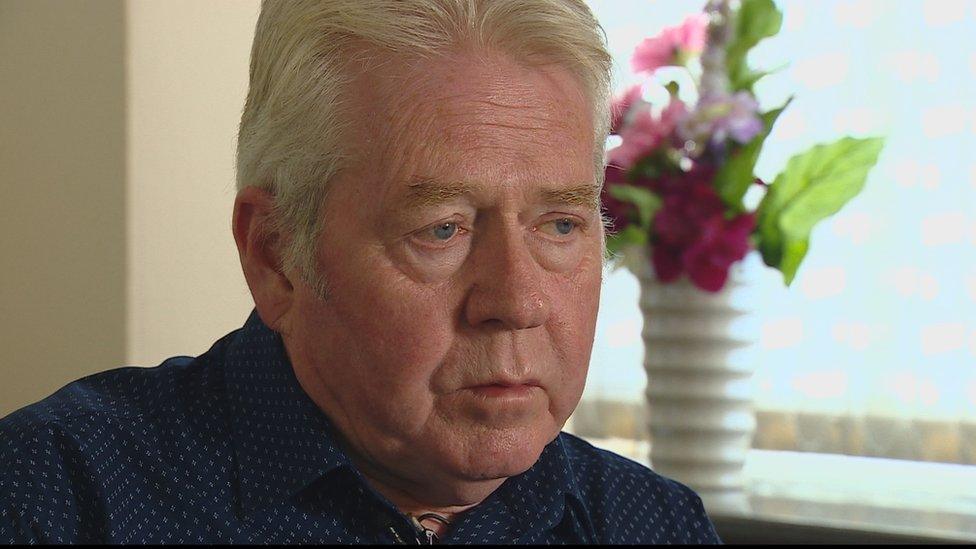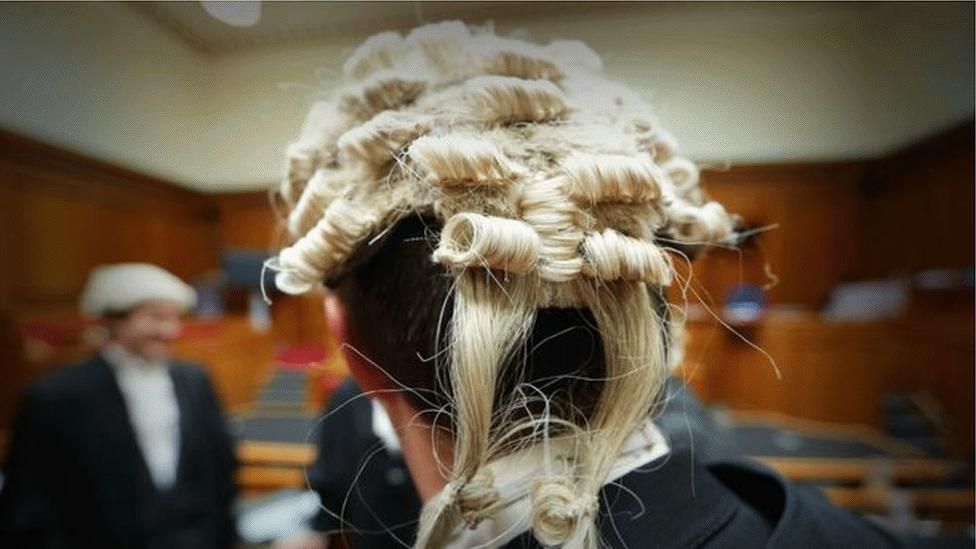Murder victim's family welcome bid to axe not proven verdict
- Published

The body of Amanda Duffy was found on waste ground in Hamilton in 1992
The family of a teenager who was murdered in 1992 have welcomed moves to abolish Scotland's not proven verdict.
The body of Amanda Duffy, who was 19, was found on waste ground in Hamilton.
Francis Auld stood trial but the case was found not proven by a jury and an attempt to secure a retrial failed in 2016.
Amanda's father, Joe Duffy, has long campaigned for the controversial verdict to be scrapped.
Scotland has three possible verdicts in criminal cases - guilty, not guilty and not proven - but MSPs will now consider changing the unique model as part of a planned new Criminal Justice Bill.
Mr Duffy told BBC Radio's Good Morning Scotland programme that family never understood the jury's decision at the time and thought it must have meant something other than a full acquittal.
He said: "If there's a third verdict, which is not proven, surely it should be a justifiable verdict.
"It must mean something different. Unfortunately we then discovered not proven means exactly the same as not guilty.
"I have said for 30 years now the only difference between not guilty and not proven is the spelling."
Earlier this month First Minister Nicola Sturgeon said the move to scrap not proven was "firmly intended" to improve access to justice for victims of crime.
It has been criticised by some in the legal world, who argue that the verdict offers additional protection to the accused, ensuring they will not be convicted if the jury has any doubts.

Joe Duffy has long campaigned for not proven to be scrapped
But Mr Duffy said: "I don't see how it gives additional protection.
"If there's insufficient evidence or the evidence isn't good enough you are actually entitled to a not guilty verdict, surely.
"Guilty and not guilty works in every country in the world. The only place that is unique is Scotland."
He also described it as a "cop out" for juries.
Mr Duffy said: "We keep hearing from the people who want to keep this that the Scottish justice system is the envy of the world and it is held in high regard but not one of them have ever produced any evidence to prove this.
"There is no country in the world that has three verdicts, especially when you consider two of them being exactly the same thing."
'False dawns'
He told the programme he had endured a number of "false dawns" over the years and was wary of getting over excited.
But he is optimistic cross-party support will ensure the bill is passed.
Mr Duffy added: "It is an unnecessary and outmoded verdict and it is long overdue to be removed.
"Hopefully this bill will get passed and we will be, as a family, absolutely delighted."
Francis Auld died in July 2017, reportedly from pancreatic cancer.
A Scottish government consultation published in July showed that 62% of the 194 responses were in favour of scrapping the controversial verdict.
However, the Law Society of Scotland said it had "deep concern" the plans would increase the risk of miscarriages of justice.
Murray Etherington, president of the society, said: "It is in the interests of every citizen that we have a fair, just and accessible criminal justice system for all those involved.
"We are deeply concerned that making such a fundamental change as removing the not proven verdict must be done with the upmost care and consideration for the wider implications and to prevent an increased risk of miscarriages of justice."

What is the not proven verdict?

Three verdicts can be handed down in Scottish criminal cases: not guilty, not proven and guilty
Despite being available in all Scottish criminal cases there is no definition of the not proven verdict, or the difference between it and a not guilty verdict.
The legal implications of a not proven verdict are exactly the same as a not guilty verdict - the accused is acquitted and is innocent in the eyes of the law.
Why is it used?
Not proven is seen by some as offering additional protection to the accused but critics argue that it is confusing for juries and the public, can stigmatise an accused person by appearing not to clear them and fails to provide closure for victims.
A study published in 2019 found removing the not proven verdict might incline more jurors towards a guilty verdict in finely balanced trials.
It also highlighted inconsistent views on the meaning of not proven and how it differed from not guilty.
What is the history of the verdict?
In 2017, Prof James Chalmers and Prof Fiona Leverick published a blog post looking at its history, external.
They said there was a common misconception that the not guilty verdict was a later addition to the proven and not proven outcomes.
And they concluded not only is the verdict of "not proven" not Scots law's original verdict of acquittal but today's "not proven" is used for a very different purpose from that for which it was introduced.
In 2015, a review by Lord Bonomy said there was anecdotal evidence that jurors "mistakenly" thought that a not proven verdict left open the possibility of a retrial.

- Published6 September 2022

- Published29 July 2017

- Published11 July 2017
